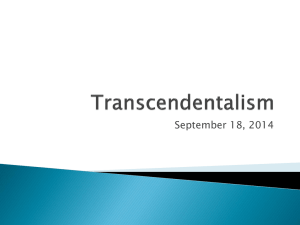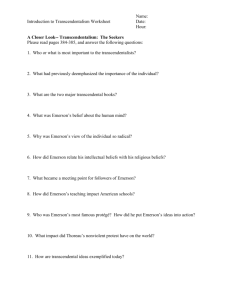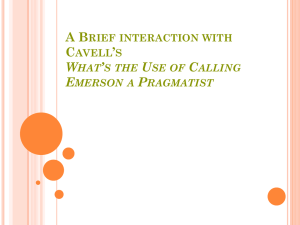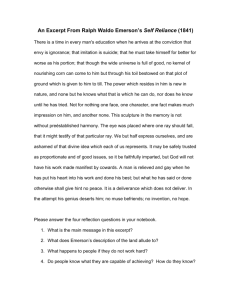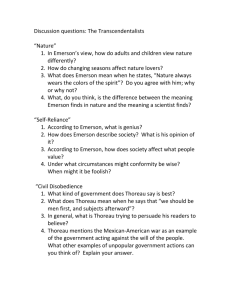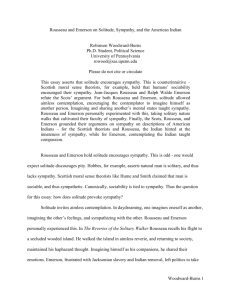Ralph Waldo Emerson (1803—1882)
advertisement
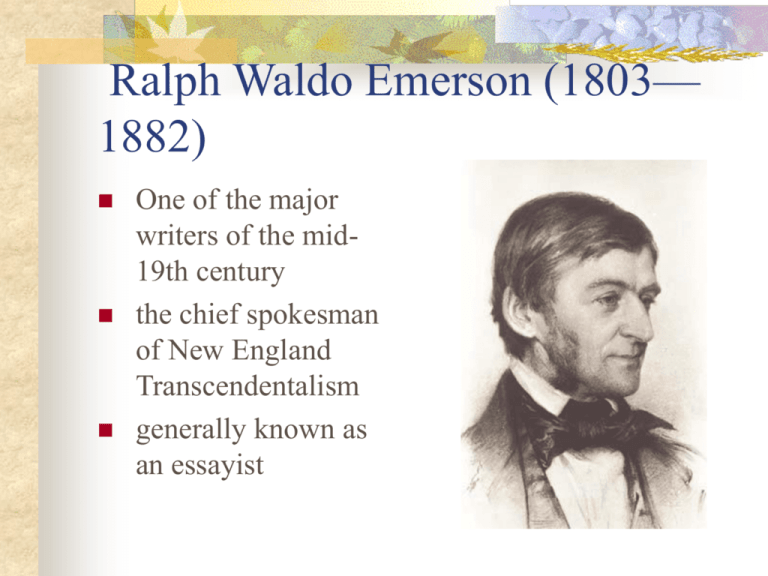
Ralph Waldo Emerson (1803— 1882) One of the major writers of the mid19th century the chief spokesman of New England Transcendentalism generally known as an essayist Emerson’s Literary Achievements 1 Nature (1836)—the manifesto (the Bible) of the American Transcendentalism. (It has an Introduction and eight chapters: 1. Nature 2. Commodity 3. Beauty 4. Language 5. Discipline 6. Idealism 7. Spirit 8. Prospects.) The major thesis of the essay, in Emerson's words, is that we should now "enjoy an original relation to the universe," and not become dependent on past experiences of others and on holy books, creeds and dogma. Emerson’s Literary Achievements 2 The American Scholar (1837) —Oliver Wendell Holmes called it “our intellectual Declaration of Independence.” He expressed in this work that Americans should write about here and now instead of imitating and importing from other lands. He called on American writers to write about America in a way peculiarly American. Self Reliance (1841) This essay elaborates further on the familiar Emersonian thesis - trust yourself. Emerson’s Ideas on Transcendentalism The soul is divine and identical in all men. We have the same instincts and desires; there is a spark of eternity in every man, and he possesses within himself the means of all knowledge. Nature is only another side of God, “the gigantic shadow of God cast on our senses”. Every law of Nature has a counterpart in the intellect. There is a perfect parallel between the laws of nature and laws of thought. God is the Over-Soul, and thus has unobstructed access to the Over-Soul. Every man may commune with God if he wills. Infants’ eyes quotations Standing on the bare ground- my head bathed by the blythe air and uplifted into infinite space – all mean egotism vanishes. I become a transparent eyeball; I am nothing; I see all; the current of the Universal Being circulates through me; I am part or parcel of God. To be great is to be misunderstood. Trust thyself: every heart vibrates to that iron string. Selected Reading of Self Reliance: Questions for Discussion: “Trust yourself”: every heart vibrates to that iron string” is one of Emerson’s most quoted lines. Cite examples from the first few paragraphs of excerpt which gives Emerson’s reasons for this belief in self-reliance and explain with example. In what way, according to Emerson, does youth exhibit force? For Emerson conformity was not a desirable characteristic for one to have. Do you think there are times when conformity is desirable or even necessary?
